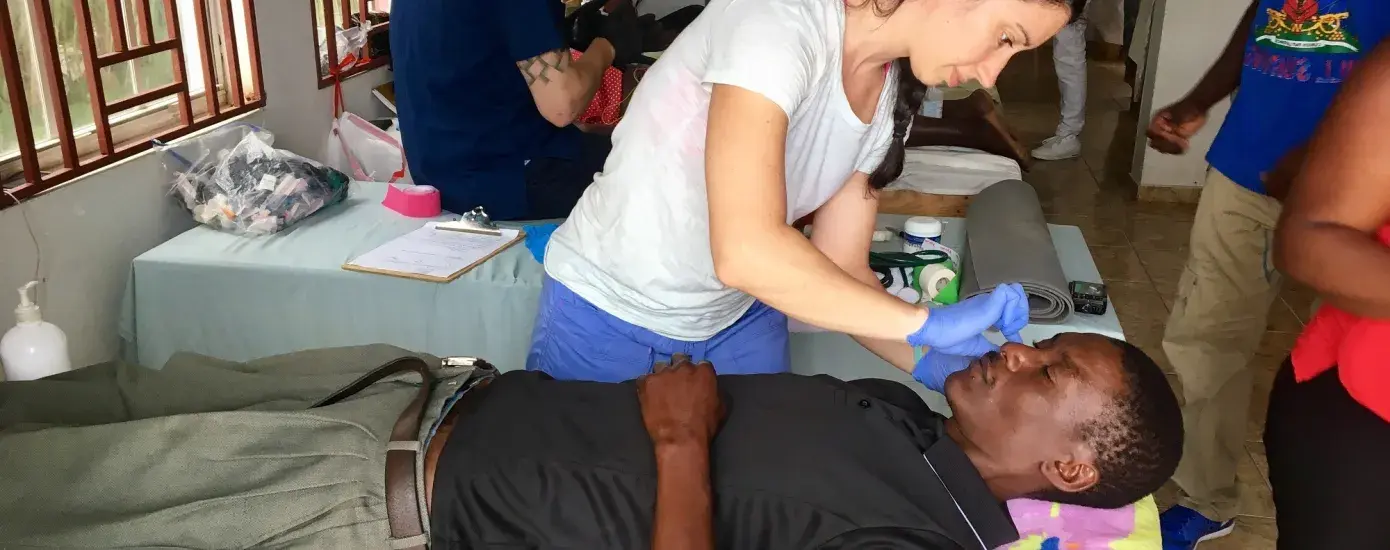
Melissa Agrimanakis has a passion for working in developing countries, which is why the 2010 DPT graduate has returned to the IHP for a nurse practitioner degree.
In all the times Melissa Agrimanakis has gone to Haiti to treat patients in the ravaged Caribbean nation, there’s one question the 2010 Doctor of Physical Therapy graduate keeps returning to: “How can I do more?”
She recently found her answer. Starting this fall, she returned to the MGH Institute as a student in the Master of Science in Nursing program to become a nurse practitioner.
“If I want to go to other countries and help build these rehab clinics, if Physical Therapy is not a recognized profession, it's going to be very hard to gain the trust of the community to help build these clinics,” says Agrimanakis, who is in her first semester in the Master of Science in Nursing program. “A nursing degree is an international degree. Everyone knows what a nurse is. Everyone understands what a nurse does.”
During her 10 trips to Haiti, Agrimanakis has been making an impact – first by winning the trust of the locals, then winning their confidence by helping them move in ways they couldn’t before.
“I treat anyone that comes in with a neuro diagnosis,” says the neuro physical therapist. “It might be someone who can’t chew their food, or they're having a really hard time moving their foot, or suddenly, they’re paralyzed. They come to see me.”
Agrimanakis also handles wounds of all kinds including those from gunshots and stabbings, burns, bug bites, scabies, rashes, and pressure injuries. You name it and Agrimanakis has probably seen it and fixed it.
“You feel good after you've treated someone,” says the 12-year physical therapy veteran. “I love seeing people feeling better. You get lots of hugs, lots of kisses, from people just excited that they can get therapy and feel better.”


